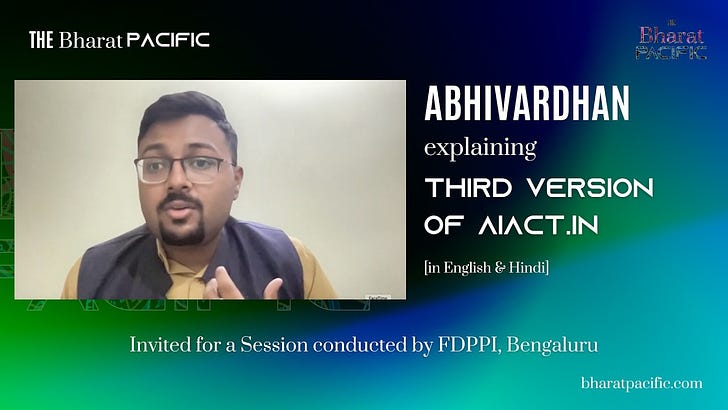This is a post authored by Mr Abhivardhan, our Chairperson.
This video offers an intriguing perspective on the AI hype in India and its influence on funding pitches, particularly within sectors like edtech and AI.
Despite the enthusiasm, securing funding is challenging, and simply presenting data in formats like CSV or XLSV is insufficient to convince venture capitalists of the viability of a profitable AI business.
Many entities labeled as "AI startups" often lack a comprehensive understanding of the essential cost-revenue models needed to sustain an AI solution, whether in B2C or B2B markets. This superficial approach contributes to the ongoing hype, with many relying solely on third-party APIs and wrappers, which do not guarantee the sustainability of AI products or services.
Echoing the sentiments of AI expert Gary Marcus, the rapid expansion of mainstream GPT solutions such as GPT-4 has been impeded by a lack of genuine innovation and industrially viable solutions.
While AI safety protocols and ethical measures are important, they are not sufficient on their own. The fundamental issue lies in the prevailing understanding of innovation within the AI sector.It is crucial for venture capitalists and investors in India to fully understand the purpose and potential of each AI use case. This understanding is vital if India aims to position itself as a leading hub for AI applications.
Highlighting a significant talent gap, Debangana Ghosh from moneycontrol.com reported (read the article: https://www.moneycontrol.com/technology/india-has-less-than-2000-senior-engineers-who-can-build-core-ai-products-xpheno-says-article-12715178.html) that India has fewer than 2,000 senior engineers capable of developing core AI products. This shortage poses a substantial challenge for startups, research labs, and MSMEs.
As Prasad MS from XPheno noted, "Core engineering of and for AI remains concentrated within highly specialized micro-talent pools operating outside of India, with only minor footprints within the country."
Addressing this issue will require strategic investments in retaining and attracting top-tier Indian engineering talent.
Furthermore, a NASSCOM-BCG report acknowledges a demand-supply gap of about 51 percent for niche skills essential for building core AI capabilities.
This gap underscores the urgent need for educational and professional development in AI technologies to support the growth of the sector in India.
Also, if you find any think tank asking for vehement AI regulation, do ask as to why such vehement regulation is necessary, because insight, understanding and industrial viability can drive smart and soft regulation and not AI hype.
This reminds me of a flowchart on AI hype & how AI safety discourse is manipulated by MNCs for decreasing competition in AI: https://twitter.com/ylecun/status/1786097053896171615
Video Courtesy: The Bharat Conversation (YouTube).











Share this post